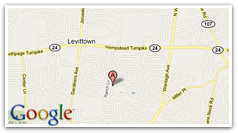Past studies have shown a connection between sudden infant death cases (SIDS) and drunk, drugged parents, so it comes as no surprise that researchers have found that more babies die of SIDS on New Year’s Day than on any other day of the year.
Shutterstock/Zdenek Fiamoli
SIDS rates surge on New Year’s Days, weekends, the day after July 4th, and just after April 20, a counterculture celebration of cannabis.
Researchers at UC San Diego looked at nearly 130,000 SIDS cases nationwide from 1973 to 2006 and found a 33 percent increase in deaths on the first day of the year. Study authors suspect the surge is a result of parents and caretakers consuming too much alcohol on New Year’s Eve.
Inebriated parents are less likely to put their babies to sleep on their backs in a crib, which is the safest sleeping position for an infant. They’re also more likely to fall asleep with their babies on couches and roll over on top of them.
SIDS is the unexplained death of a seemingly healthy baby. Typically, the child is found dead after going to sleep and exhibits no signs of suffering. SIDS has decreased significantly since the 1994 implementation of the “Back to Sleep” campaign, which urges caregivers to put infants on their backs to sleep, yet it continues to be the leading cause of death for children age 1 month to 1 year. Some 2,500 babies die of SIDS a year in the United States.
UCSD sociology professor David Phillips says the study can’t point definitively to alcohol consumption as a cause of SIDS, but he has plenty of evidence making a strong case.
For one thing, past research has already found that the SIDS death rate is abnormally high for children of alcohol-consuming mothers. Also, Phillips and his team of researchers found that SIDS rates increase on weekends and the day after July 4, when parents are more likely to drink alcohol. They also noticed a spike just after April 20 (or 4/20), which is a counterculture celebration of cannabis.
“We know that when people are under the influence of alcohol their judgments are impaired and they are not as good at performing tasks. This would include caretaking,” Phillips said.
“The ‘Back to Sleep’ campaign was largely successful,” he adds. “A similar campaign might now be implemented: There should be increased efforts to inform caretakers that alcohol impairs parental capacity and might be a risk factor for SIDS.”



